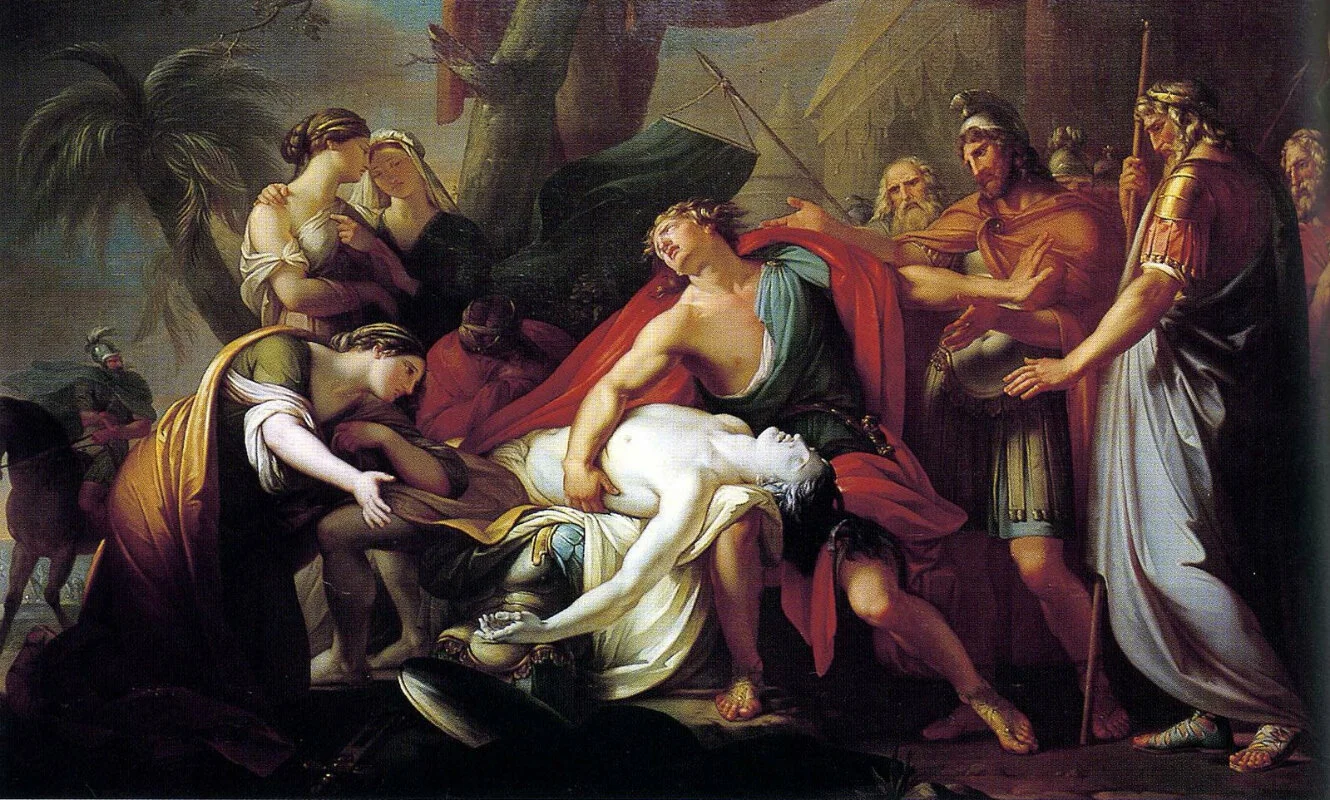Achilles and Patroclus in Greek Mythology: Friends or Lovers?
If you are familiar with Greek mythology, I am sure you’ve heard of Achilles and Patroclus, two close men who fought in the Trojan War. The relationship between Achilles and Patroclus is a pretty common debate: were they friends, or lovers? Based on the material we have on them, it’s clear that their bond is intimate. But with many different variations and interpretations, it’s hard to say for sure what kind of connection the pair has. Let’s break it down and see what the most popular ideas are, and why their relationship speaks to so many people.
To start, we should definitely take a look at Homer’s Iliad, which is where many people look for information about Achilles and Patroclus. Although the piece details their lives, the nature of their relationship is unclear. This ambiguity may not be done on purpose, but it has led to a large number of divergent conclusions.
Homer never explicitly depicts a romantic relationship when it comes to Achilles and Patroclus, nor does he allude to anything sexual between them. Yet it’s impossible to deny that they are very close to one another (such as how Achilles acts gentler around Patroclus, and how the two are constantly together). They almost seem like partners in life, even if you just examine their connection in a platonic context.
One of the most substantial moments in the Iliad that many use to support the idea of a romantic relationship is how Achilles reacts after Patroclus dies. His death occurs because Achilles refuses to fight to protect his honor, so Patroclus dresses up in Achilles’ armor and goes out to the battlefield. The Prince of Troy, Hector, kills him thinking he is Achilles. Once Achilles finds out, he erupts with rage and murders Hector. Achilles knows this act will bring upon his own fated death, but he still carries it out. Achilles’ strong reaction to Patroclus’ death is often taken as a sign that their relationship was possibly deeper than it may seem at first glance. Those who believe they were lovers often cite lines where Achilles says that he loved Patroclus as his own life (Book 18). Another popular piece of evidence for the argument is that Patroclus requests that their bones be buried together, which indicates the strength of their bond.
After this, other writers such as Aeschylus and Plato have depicted the two of them in a sexual or romantic relationship, although in many Greek works they are considered to have a large age difference. These writers also go back and forth between which of the pair is the erastes, which is the older one in the relationship.
Following these mainstream portrayals, many have continued to debate the nature of their relationship. Different versions that came out depict Achilles and Patroclus in very distinct ways, such as Shakespeare’s Troilus and Cressida which shows them as lovers, whereas the Hollywood film Troy portrays them as cousins. Yup, you read that right, cousins.
The novel The Song of Achilles, which is one of my favorites, depicts the entire relationship between Achilles and Patroclus. They are shown as lovers, using the source material of the Iliad to back up the events that occur. Their relationship is very beautiful and intimate in the novel, and author Madeline Miller does a great job of capturing the emotions they have for one another as the story unfolds. She has previously said the biggest piece of evidence that they were lovers goes beyond how deep Achilles’ grief is following Patroclus’ death; it is also how he grieves the death. This is something many others have picked up on, as I mentioned previously, which contributes to the idea that Achilles and Patroclus may have been lovers.
Numerous other Greek stories depict possible same-sex relationships. Sappho, the Greek poet who is often compared to Homer, often expresses love for women in her work and her sexuality has long been debated. These are just a few examples of why Achilles and Patroclus being lovers may not be so far-fetched as some people may claim. Then again, we do not have anything explicitly leading us to that conclusion.
At the end of the day, the stories and characters are mythological and we cannot know the intentions of Homer for certain. But many members of the LGBTQ+ community take pride in the fact that Achilles and Patroclus may have been lovers because, in many ways, it seems as though it could be true.
What do I think? I think that their relationship is certainly intimate and can be perceived as romantic. I am not saying that is what Homer intends or that is what everyone may believe, but I believe it is not difficult to understand why people see it that way. Ask yourself: if it were a man and a woman who acted the same way, would you possibly be more inclined to believe it as romantic? And to those out there who disregard even the possibility that it could be more than platonic without giving the idea consideration, I think that your attitude speaks for itself.
Avani is a Rutgers University student who is passionate about television and bands. In her free time, she can be found reading fantasy books or snacking.











